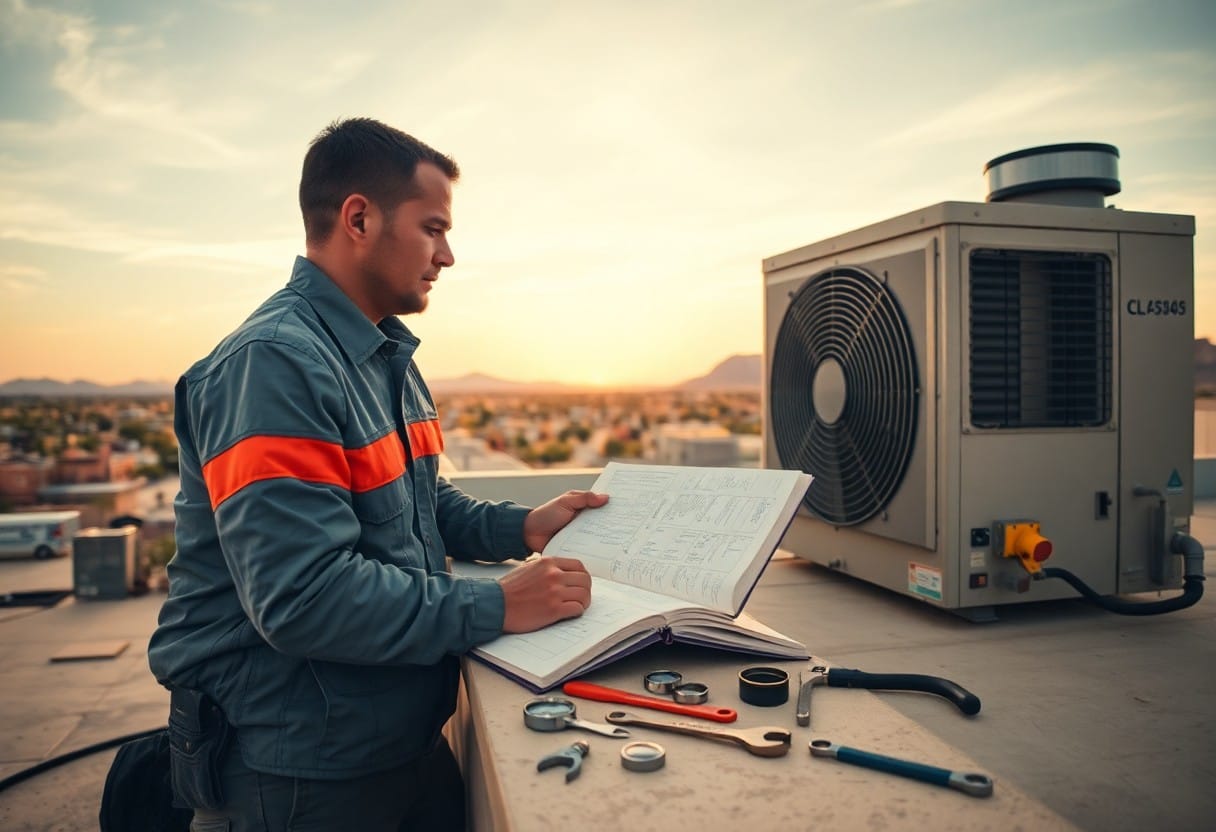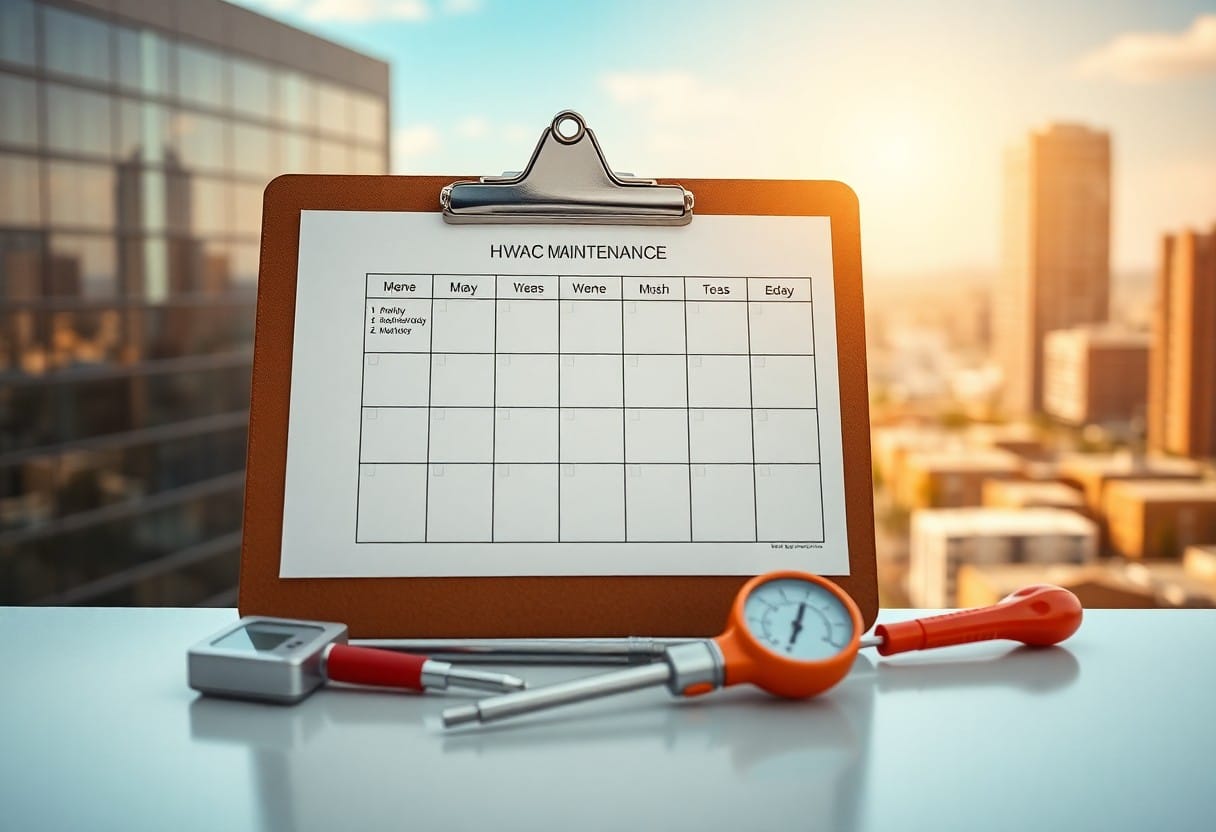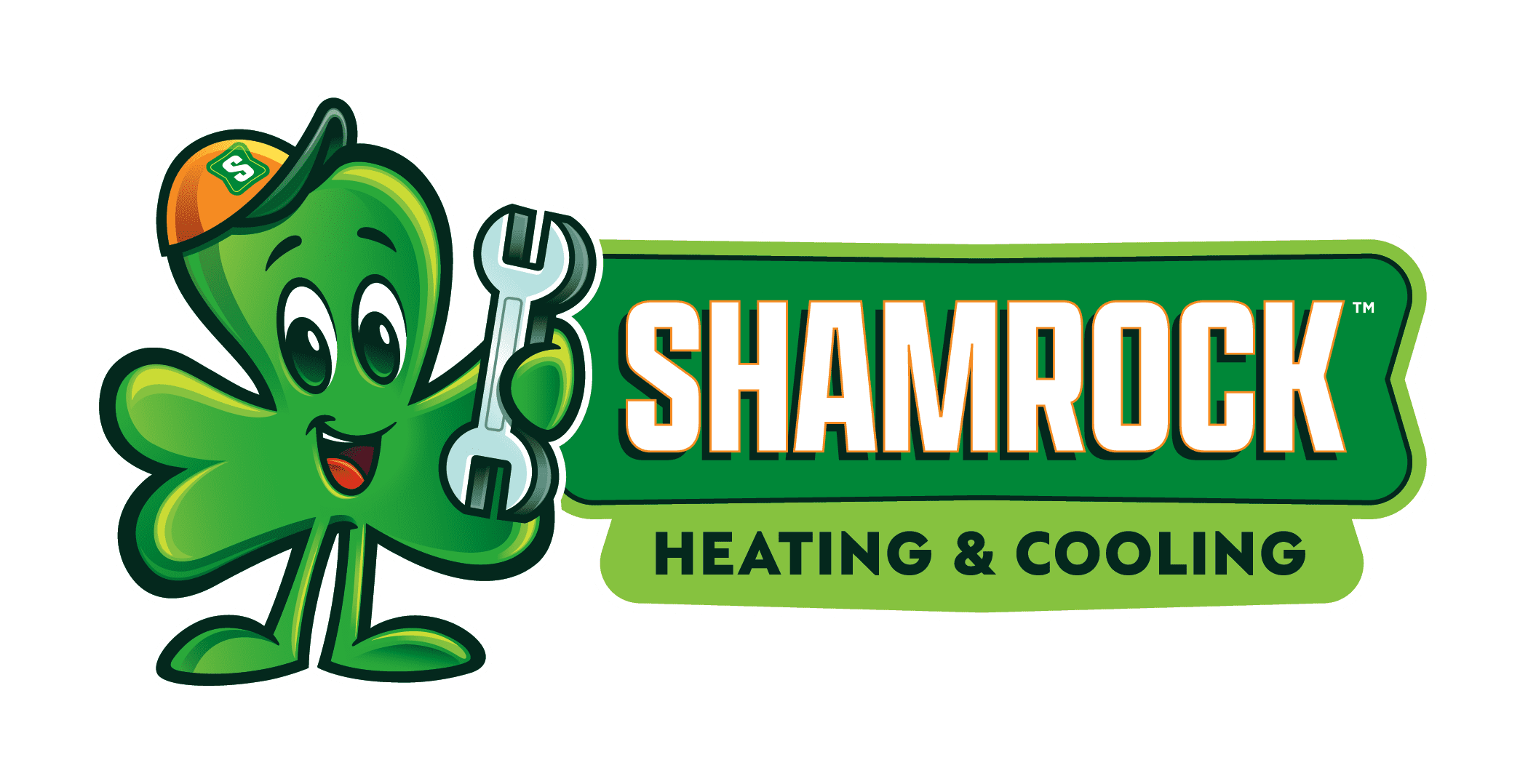Many homeowners in Phoenix underestimate the importance of a well-maintained HVAC system. Keeping up with a year-round maintenance schedule not only enhances your system’s efficiency but also prolongs its lifespan and ensures optimal indoor air quality. By staying proactive, you can prevent costly breakdowns and health hazards caused by neglected systems. This guide provides you with a practical calendar to help you manage your HVAC care throughout the seasons, ensuring your home remains comfortable and safe at all times.

Importance of HVAC Maintenance
Energy Efficiency
Regular HVAC maintenance directly influences your system’s energy efficiency. A clean and well-functioning system uses significantly less energy, translating to lower utility bills. For example, addressing clogged air filters can improve airflow and efficiency by up to 15%. By ensuring that all components are operating optimally, you can save an average of 10-30% annually on your energy costs. This not only benefits your wallet but also reduces your home’s carbon footprint.
Optimizing energy efficiency can include tasks such as checking refrigerant levels, cleaning coils, and ensuring ductwork is sealed properly. Each of these actions plays a role in maintaining the system’s efficiency. An HVAC system that operates smoothly doesn’t strain as much to perform its job, which means fewer resources are consumed, leading to enhanced efficiency year-round.
System Longevity
A well-maintained HVAC system is likely to last significantly longer than one that isn’t cared for properly. Systems that receive regular tune-ups can last 15-20 years or more, while neglect can reduce that lifespan to a mere 10 years. Regular maintenance helps identify potential issues before they escalate, thus avoiding costly repairs and premature replacements. Investing in annual inspections can also save you thousands in the long run by ensuring your system continues to operate effectively.
Furthermore, simple tasks like cleaning or replacing filters regularly can reduce wear and tear on the system’s components. Additionally, keeping the outdoor unit free from debris and ensuring the ductwork is clean ensures that air moves efficiently through the system. This proactive approach enhances the reliability of your HVAC system, ensuring you stay comfortable regardless of the extreme Phoenix temperatures.
Seasonal Maintenance Checklist
Spring Tasks
As temperatures begin to rise in Phoenix, focusing on your HVAC system’s readiness for the cooling season is vital. Start by replacing or cleaning the air filters to ensure optimal airflow and improve indoor air quality. This simple step can significantly enhance the efficiency of your system, potentially lowering energy costs by as much as 15%.
Check the refrigerant levels and look for any signs of leaks, which can hinder your system’s performance. Schedule a professional AC tune-up to inspect components like coils, ductwork, and the thermostat for proper functionality. Performing these tasks in spring prepares your system to handle the intense summer heat without overworking.
Summer Tasks
Intensely hot days in Phoenix demand that you keep your HVAC system running smoothly. Regularly inspect and clean the condensate drain to prevent clogs that can lead to water damage and mold growth. You should also keep the outdoor unit free of debris, as obstructions can impede airflow and efficiency.
Scheduling a mid-summer checkup can further enhance performance and comfort. Technicians can fine-tune settings and check for any potential issues that might cause system failure during peak usage times. Adopting these measures can sustain your air conditioning unit’s longevity and efficiency.
Investing some time in summer tasks not only maximizes the efficiency of your system but can also prolong its lifespan. Regular maintenance allows you to catch potential issues early, preventing costly repairs when temperatures soar.
Fall Tasks
As fall approaches, you should start preparing your HVAC system for the cooler months. Begin by cleaning and inspecting your furnace, ensuring that the burners and heat exchanger are functioning correctly to avoid dangerous carbon monoxide leaks. Once cleaned, replace the air filters to maintain airflow and efficiency during the heating season.
It’s the perfect time to check and seal any gaps or leaks in your ductwork, which can account for up to 30% of your energy consumption. Properly sealing and insulating ducts ensures efficient heat distribution and minimizes your heating bills. Consider scheduling an inspection with a professional to perform a comprehensive checkup of your heating system.
As temperatures drop, ensuring your heating system is ready to operate effectively can prevent breakdowns during chilly nights. Maintaining clean filters and checking ductwork condition will directly enhance your system’s performance and your comfort at home.
Winter Tasks
During winter, prioritize your heating system to avoid unexpected failures. Start by frequently checking the air filter and replacing it every one to three months, as restricted airflow can cause overheating and increase energy costs. Routine checks of the thermostat are also necessary to ensure it accurately reflects your desired temperatures.
Pay attention to the signs of heater inefficiency, such as unusual noises or uneven heating. Conducting regular inspections will allow you to spot problems before they escalate into larger, more costly repairs. Additionally, focus on keeping the area around your heating unit clear of any obstructions to ensure optimal airflow.
Winter maintenance is crucial for keeping a warm, comfortable home. A well-maintained heating system not only functions efficiently but also reduces the risk of breakdowns when you need it most, ensuring peace of mind throughout the season.

Monthly Maintenance Tips
Implementing a robust monthly maintenance routine for your HVAC system can significantly enhance its efficiency and longevity. Regular tasks, like checking the thermostat settings, cleaning the condenser coils, and examining ductwork for leaks, can prevent larger issues from arising. A detailed checklist might look like this:
- Inspect and replace the air filter as necessary.
- Clean the condensate drain to prevent clogs.
- Inspect the thermostat calibration.
- Examine air ducts for any visible damage.
- Check for any unusual noises or smells from the unit.
These tasks not only ensure smooth operation but also can lead to significant energy savings. Perceiving the importance of regular upkeep helps in preemptively addressing potential failures.
Filter Replacement
Replacing the air filter monthly is one of the simplest yet most impactful tasks you can perform. A clogged or dirty filter restricts airflow, making your system work harder and leading to increased energy consumption. A clean filter helps maintain good air quality and keeps your HVAC system running smoothly.
In areas like Phoenix, where dust and debris can accumulate quickly, changing your filter regularly is imperative. Portable air quality monitors are useful if you want to track the effectiveness of your filters. Ensuring that you install the correct size and type of filter will maximize efficiency and prolong the life of your HVAC unit.
System Inspections
Monthly system inspections play an vital role in maintaining optimal HVAC performance. During these inspections, look for signs of wear and tear, check refrigerant levels, and ensure that components function correctly. If you notice any discrepancies, addressing them promptly can save you substantial repair costs down the line.
Inspecting components like the compressor and blower motor allows you to catch mechanical failures early. Moreover, an inspection gives you insight into the overall health of your system and identifies areas that may require professional attention. Addressing minor issues before they escalate is key to maintaining a reliable HVAC system throughout the year.
Troubleshooting Common Issues
No Cooling/Heating
Experiencing a total lack of cooling or heating can be alarming, especially during extreme temperatures in Phoenix. Start by checking your thermostat settings; ensure it’s set to the correct mode and temperature. If the thermostat appears functional, inspect your air filters. Clogged filters can restrict airflow, leading to a system that struggles to regulate temperature. Replace the filter if it’s dirty, and monitor performance afterward.
If the problem persists, examine the outside condenser unit. Debris, dirt, or ice accumulation can hinder operations. Clear any obstructions around the unit to enhance airflow. In some cases, a blown fuse or tripped circuit breaker may cause power interruptions. Resetting your breaker might resolve the issue, but consistent failures may indicate deeper electrical problems that require professional attention.
Strange Noises
Unusual sounds from your HVAC system should never be ignored, as they often indicate underlying issues. Rattling or banging noises could signify loose components or debris in the system. If you hear a high-pitched squealing, it may suggest worn-out fan belts or motor bearings that require immediate attention. Addressing these sounds early can prevent more extensive damage and costly repairs down the line.
Hissing or bubbling noises could suggest refrigerant leaks, which not only compromise your system’s efficiency but also pose environmental hazards. Promptly contacting a professional to diagnose and repair these issues avoids risking total system failure. Maintaining clear communication about the noises you hear will assist in heightening your HVAC technician’s understanding of potential problems when they arrive.
Professional HVAC Services
To keep your HVAC system operating efficiently throughout the year, partnering with professional HVAC services is necessary. Technicians possess the expertise to perform complex diagnostics and repairs that can extend the lifespan of your system. They are equipped with advanced tools and technologies to address issues that you may find challenging, such as refrigerant leaks or electrical malfunctions.
When to Call a Technician
Scheduling a visit with an HVAC technician becomes necessary when you notice irregular system behavior. This can include unusual noises, poor air quality, or fluctuating temperatures that your adjustments don’t seem to resolve. Ignoring these signs can lead to more severe complications down the line, which could result in larger repair costs or premature system failure. Catching small issues early can save you money in the long run.
Annual inspections are also a recommended benchmark, ensuring that your system receives a thorough evaluation. An expert can check for hidden problems, assess system efficiency and make necessary adjustments that might not be apparent to you. Regular maintenance visits not only enhance performance but can also prevent sudden outages during high-demand seasons.
Choosing the Right HVAC Service
Selecting the appropriate HVAC service requires careful consideration of several factors. Investigate the company’s reputation by reading reviews and obtaining referrals from friends or family. Verify certifications and licensing to ensure their technicians have the necessary training and experience. Reliable services often provide a comprehensive warranty on their work, giving you additional peace of mind.
Evaluate the range of services offered, including emergency repairs and regular maintenance plans. A reputable company will provide transparent pricing and a clear breakdown of costs before any work begins. Having a contractor who understands your specific needs, particularly in an environment like Phoenix with extreme temperature variations, can make a significant difference in your comfort and energy efficiency.
DIY vs. Professional Maintenance
Benefits of DIY
Taking a DIY approach to HVAC maintenance offers a level of convenience and cost savings that many homeowners appreciate. Basic tasks like changing filters, cleaning vents, and inspecting insulation can easily be done without professional assistance. You set your own schedule, allowing you to fit these tasks into your life as needed. Additionally, performing these maintenance activities regularly can improve the overall efficiency of your system, reducing energy bills by up to 30%.
Knowledge gained from engaging in DIY maintenance empowers you to understand your system better. By regularly examining components like ductwork and mechanical parts, you can identify potential issues early. This proactive approach not only extends the life of your equipment but also enhances your skills, making you more competent in handling minor repairs or adjustments.
Risks of DIY
While DIY maintenance may seem appealing, it comes with significant risks that can lead to costly errors or even hazardous situations. You might unintentionally void your warranty if you perform tasks not approved by the manufacturer, which can lead to unexpected repair bills. Moreover, technical tasks involving electrical components can present dangers if improperly handled, resulting in electric shock or damage to the system.
Understanding the mechanical and electrical nuances of your HVAC system is necessary for effective DIY maintenance. Without proper knowledge, misconceptions about system functioning can arise, causing you to misdiagnose issues. In scenarios like refrigerant handling, improper techniques can lead to serious environmental violations or health risks. Always evaluate your skill level against the tasks at hand before opting to go the DIY route.
Conclusion
Taking this into account, adopting a year-round HVAC maintenance schedule in Phoenix will significantly enhance the efficiency and longevity of your system. By diligently following the seasonal care calendar, you ensure optimal performance during both the scorching summer months and the milder winters. Regular servicing will not only prevent unexpected breakdowns but also lower your energy bills by keeping your system running smoothly.
Your proactive approach to HVAC maintenance will provide peace of mind, knowing that your home remains comfortable regardless of the weather outside. By prioritizing this schedule, you invest in the overall health of your HVAC system, safeguarding your investment and ensuring a reliable environment for you and your family.

